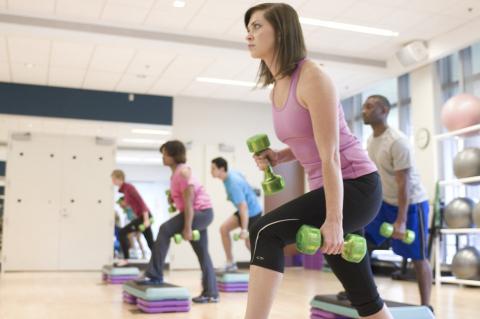Mind And Matter: Exercise Your Body, Not Just Your Brain
Oct 31,2015
When you go to college, your natural instinct (with some obvious exceptions) is to focus on your studies to the detriment of virtually everything else. Almost nothing can justify the amount of time it takes to put aside your schoolwork and do something not pertaining to academics. And while it is certainly good to be devoted to your classes, you should not delude yourself into thinking that it is the only thing that matters. As time-demanding as studying can be, for instance, we all eventually have to put the books away, turn the lights off, and go to sleep. If you stay up all night in the belief that sleeping is an unforgivable distraction from your work, you will be in little position to retain the information you learned during the night, and certainly not in a position to critically analyze or discuss it. It's not just sleep that students choose to forgo as they delve into their studies, though: an alarming number of students (including, until recently, yours truly) make little to no effort to maintain their bodies through simple exercise.
In fairness, maybe it's not as simple as I say it is. Not only does consistent exercise demand time, it also requires that one exert their body to their very limits, something that I can imagine many students, already exhausted after a day of early morning lectures and extended seminars, have little appetite for. However, it would behoove them to make time after seeing this one particularly alarming statistic: according to the Centers for Disease Control and Prevention, 69% of Americans 20 years and older are overweight, with 35% of these same Americans being outright obese. While there certainly are people who are genetically predisposed to obesity and general out of shapeness, a majority of them are almost certainly overweight due to unhealthy lifestyle choices and habits, such as not working out regularly or eating junk food. After all, if you don't make time for exercise, how can you expect your body to function like you do?
This is not a negative judgment on my part - believe me, I myself am a long-time fast food junkie and couch potato - this is a simple statement of fact. On the off chance that you, as an increasing number of people do, don't see any problem with being fat, you are more than free to scoff and stop reading. If you believe, however, that being overweight is neither healthy nor desirable, then I would strongly advise you to start working out. Sure, that's not the only way to lose weight: you can also diet and get similar results. However, that requires denying yourself something (in this case, food), and if there's one thing Americans hate, it's denying themselves things, so instead I will encourage them to partake in an activity that gives the impression they have gained something rather than denied it.
Being something of a nonconformist myself, I understand why some might not particularly care for the team-oriented nature of most sports. The level to which a participant is dependent on others can be vexing and at times downright frustrating, and the sheer amount of time you must spend organizing such activities can definitely get in the way of schoolwork. Fortunately, there are plenty of physical activities that cater to the needs of individuals rather than groups. I myself am a big fan of running, not necessarily track and field, but simply running around a track (although you could easily run at any location if you wish). All you need to do is walk to a track on campus, do some stretches, and start running. Like many do, I find listening to music during my runs especially envigorating, so I would recommend bringing an iPod or other listening device and headphones so you can listen to them. I will admit, it will wipe you out the first couple times you do it, but as you do it more and more, your body will develop resistance to the strain and become stronger, allowing you to push yourself further. After a few months, others might even notice the fruit of your labors, with at least one person not-so-delicately noting, "Hey! You've lost weight!"
But it's not about what others notice or think about you: it's about what you think about yourself. Everytime you complete a workout, you feel like you've achieved a victory, and that's because you have. You have budgeted time to perform maintenance, so to speak, on the most vital part of you: your very person. And that sense of accomplishment you cultivate on the field will carry over into the classroom, where you will be both more alert and able to endure the occasional monotony better than your non-active peers. It's a win-win, for your brain and your body!






